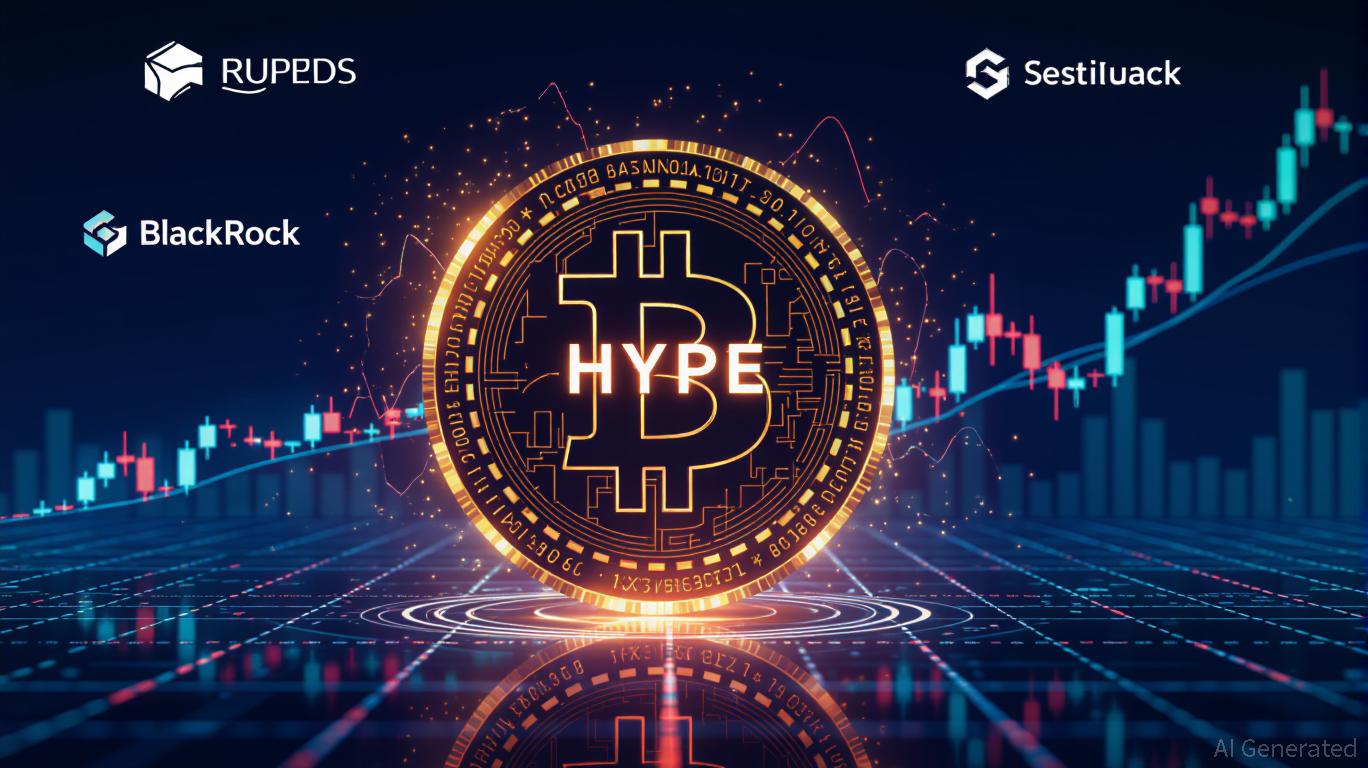Innovation or Tradition: Polygon's New Branding Stirs Debate Within the Community
- Polygon co-founder Sandeep Nailwal reconsiders rebranding from POL back to MATIC amid community debate over brand recognition and user confusion. - The 2024 migration to POL aimed to align with Polygon's multi-chain ecosystem but faced criticism for diluting familiarity among retail users. - POL's 89% price decline since March 2024 has intensified concerns about rebranding's market impact, despite CEO Marc Boiron's scalability defense. - Community responses remain divided, with some advocating for MATIC'
Polygon co-founder Sandeep Nailwal is reconsidering the network’s approach to token branding, igniting a public discussion about whether the project should switch its ticker symbol from
The transition from MATIC to POL in September 2024 was a key part of Polygon’s 2.0 roadmap, which aimed to support the network’s shift toward a multi-chain ecosystem featuring zk-rollups and independent “supernets.” While MATIC functioned as an ERC-20 token on

The community is split on whether to reverse the change. Some believe MATIC’s established reputation makes it the preferable option, while others argue that POL has already gained traction and another change could erode confidence. One X user commented that “POL has already cleared the toughest hurdle, which is gaining initial acceptance,” while another suggested new tickers like PGON to blend tradition with a fresh identity
Polygon’s token price trends have also played a role in the conversation. According to CoinGecko, POL is currently valued at $0.13, marking an 89% drop from its peak of $1.29 in March 2024
Nailwal’s willingness to listen to community input reflects the decentralized nature of blockchain governance, where collective voices often shape decisions. However, whether a return to MATIC is practical remains unclear. Exchanges may be reluctant to implement another ticker change, and repeated rebranding could further fragment the brand. As the discussion continues, Polygon’s situation illustrates the complex balance between innovation and maintaining a consistent brand in the cryptocurrency industry.
Disclaimer: The content of this article solely reflects the author's opinion and does not represent the platform in any capacity. This article is not intended to serve as a reference for making investment decisions.
You may also like
The Growing Importance of Education in Influencing Future Workforce Developments and Investment Prospects
- Education and employment are converging as tech, healthcare , and renewable energy reshape workforce demands, prompting universities to overhaul curricula with AI, data science, and digital skills. - Investors are capitalizing on AI-driven edtech platforms and healthcare AI diagnostics, with U.S. edtech funding surging to $2.9B in 2024, reflecting growing demand for tech-savvy professionals. - Renewable energy’s $623B 2023 investment boom highlights skilling initiatives like ComEd’s Power Up Academy and

HYPE Token Price Fluctuations and Institutional Attitudes in the Crypto Market: Weighing Immediate Risks Against Future Opportunities
- HYPE token's 2025 price swings ($24.51-$57.38) highlight crypto's short-term volatility driven by whale activity, token unlocks, and market jitters. - Hyperliquid's 70-80% DEX futures market dominance stems from 90% fee cuts, $47B weekly volumes, and partnerships with BlackRock/Stripe for USDH stablecoin. - Institutional adoption via 21Shares' SEC ETF proposal and $1B treasury buybacks aim to stabilize HYPE, though regulatory uncertainty remains a key risk. - Analysts project $30-$60 stabilization by 202

Exploring New Challenges in Cryptocurrency Portfolio Management
- 2025 crypto landscape balances innovation with rising token scams, driving stricter regulatory enforcement and operational safeguards. - DOJ/SEC actions against fraudsters like Roger Ver and ByBit hackers, plus UK FCA sandboxes, highlight global accountability trends. - Blockchain analytics tools (TRM Labs, Chainalysis) enable real-time AML/KYC compliance and $2.17B+ stolen fund recovery through AI-driven monitoring. - FINRA/Georgetown and university programs build crypto literacy, while Kryptosphere-Del
COAI Price Reduction and Its Impact on Clean Energy Markets
- COAI Index's 88% November 2025 drop exposed crypto AI and clean energy market vulnerabilities, triggered by C3.ai's leadership crisis and $116.8M Q1 loss. - Regulatory ambiguity from the CLARITY Act and corporate governance failures forced capital flight to stable AI infrastructure stocks like Celestica (5.78% weekly gain). - U.S. clean energy investment fell 36% in H1 2025 due to policy uncertainty, contrasting with Europe's $30B offshore wind surge amid Trump-era fossil fuel/nuclear shifts. - CCUS, blu
